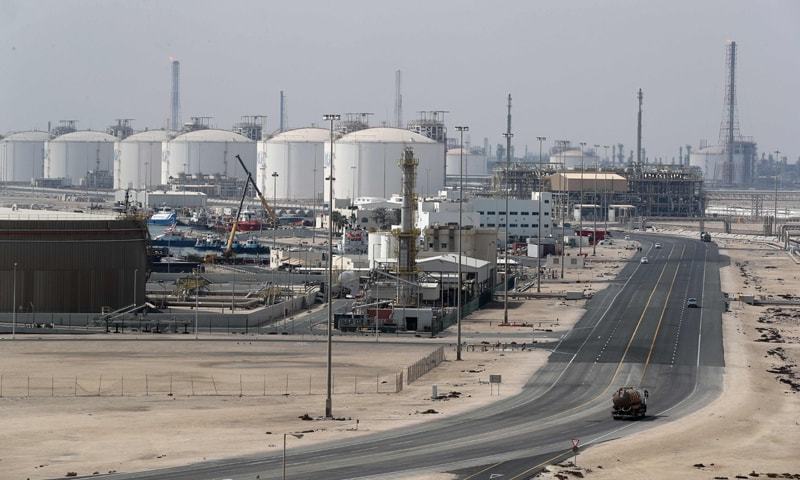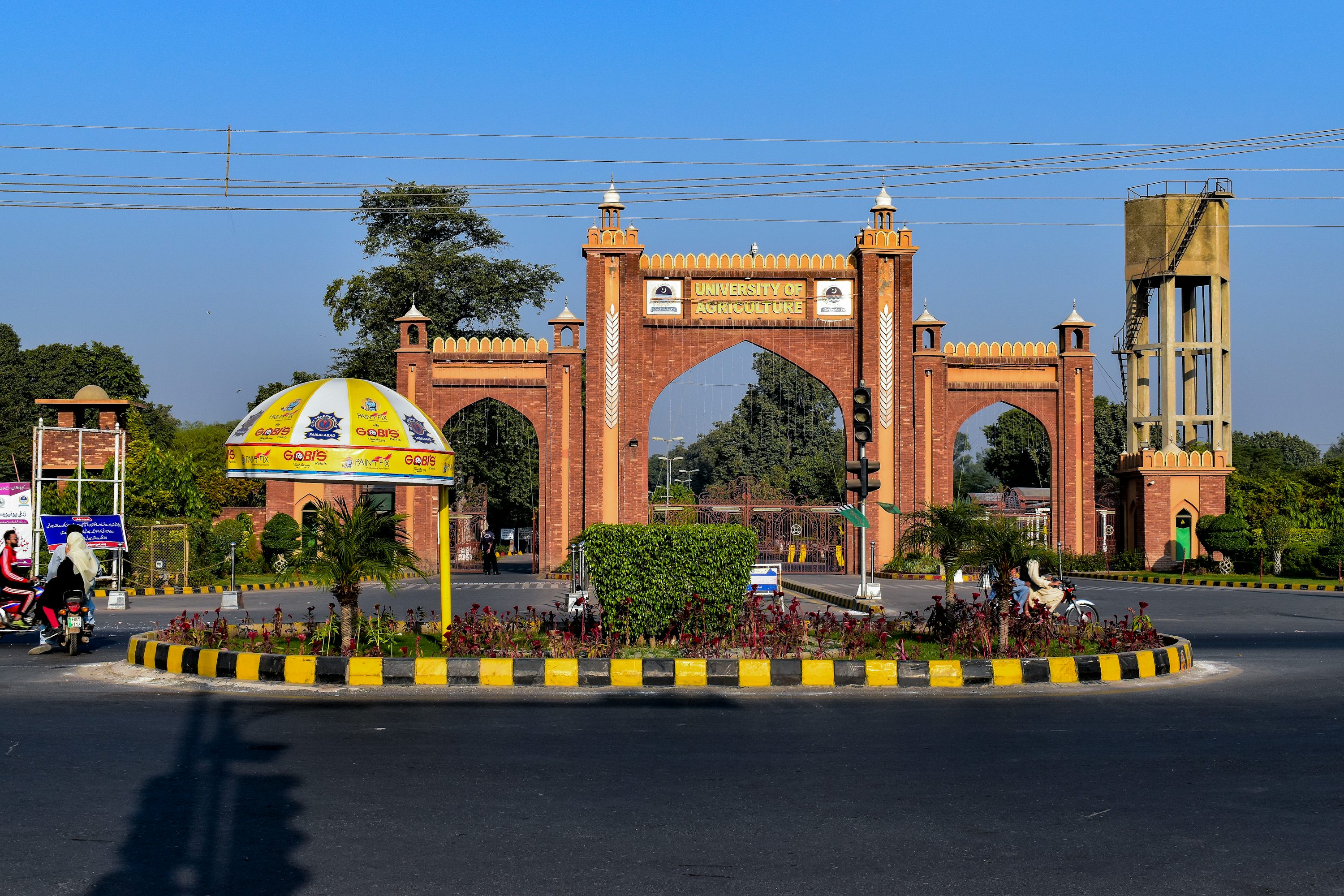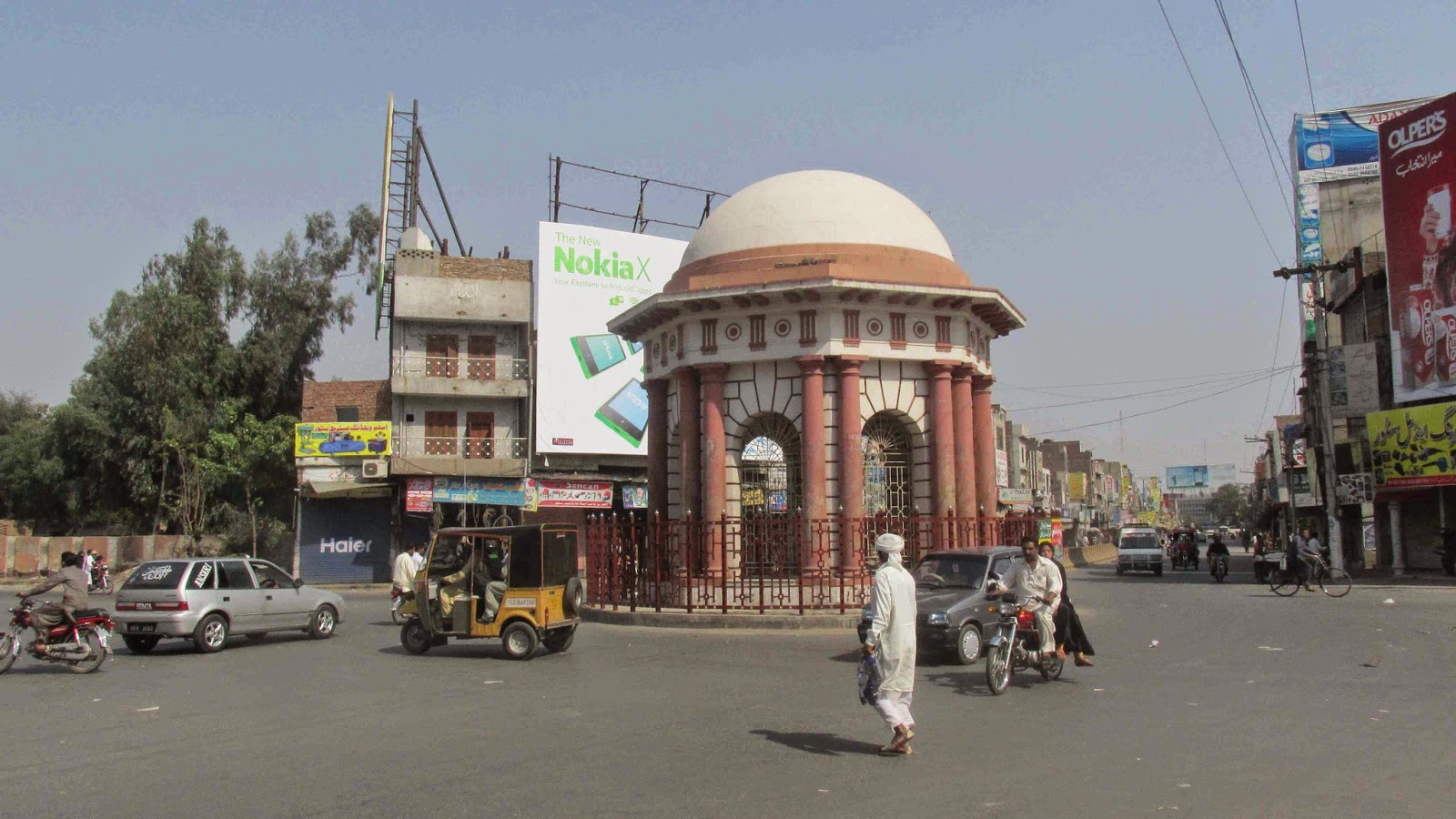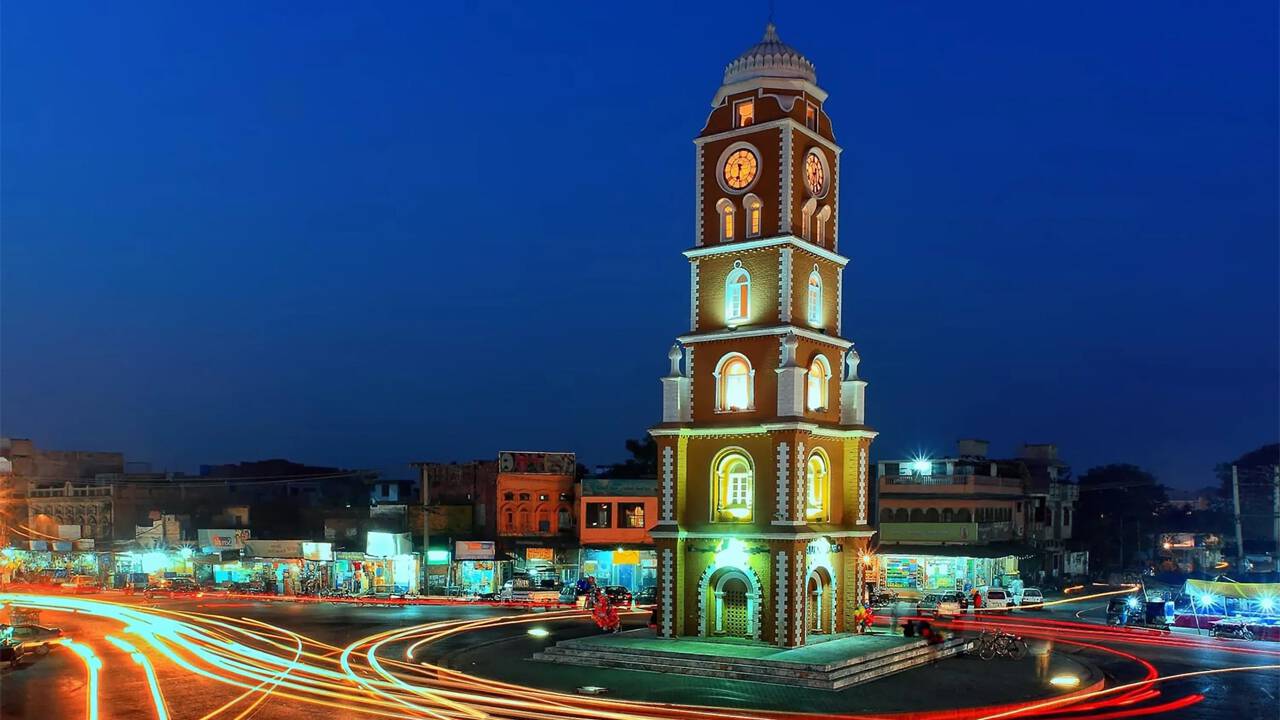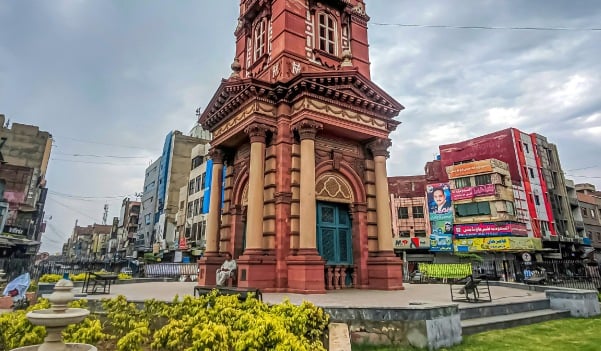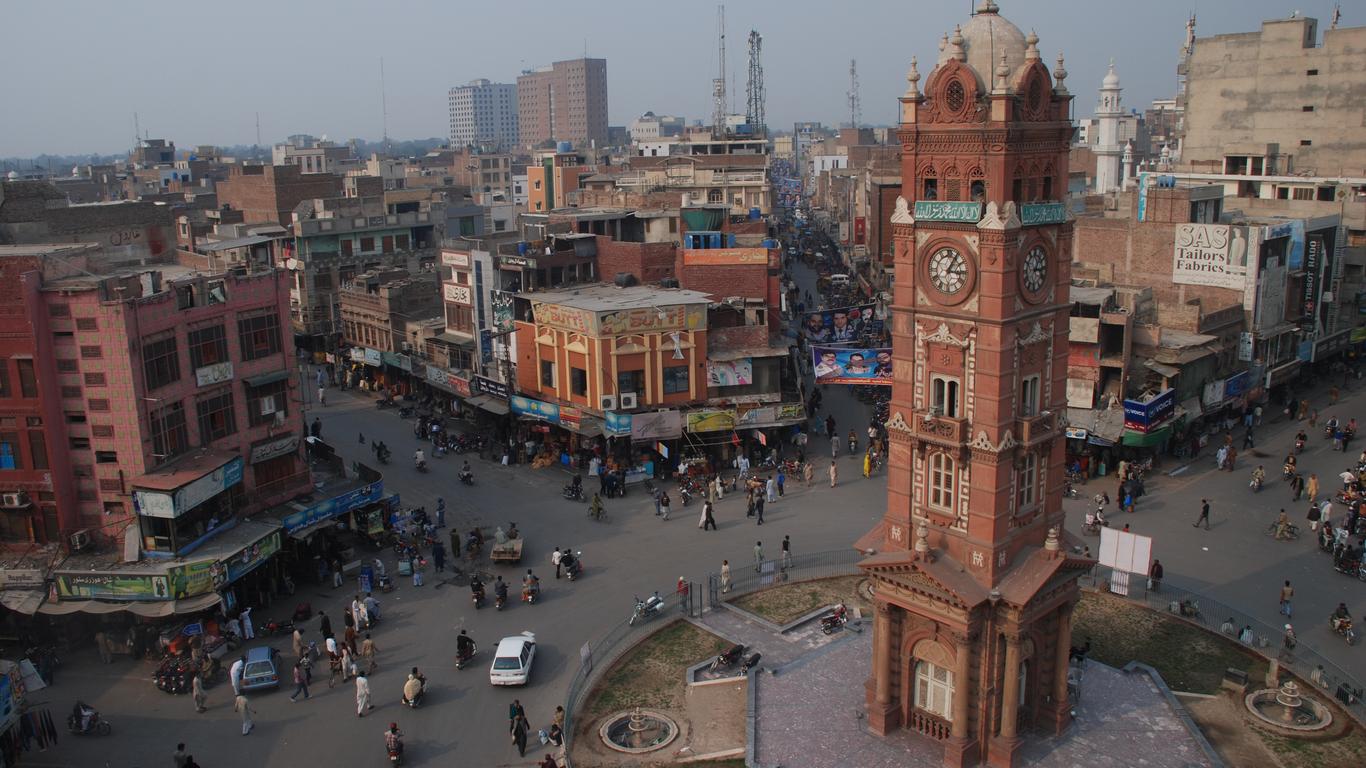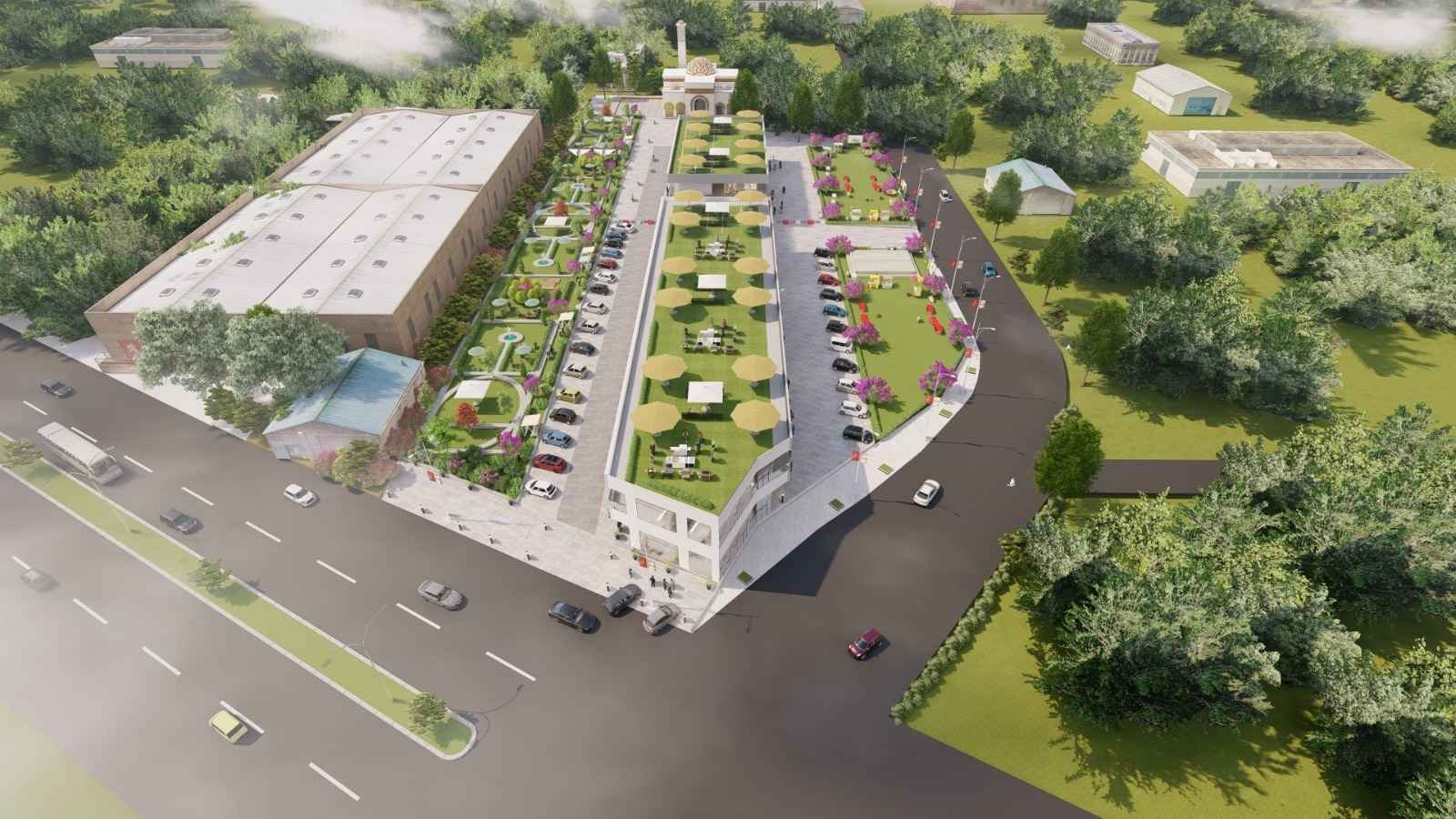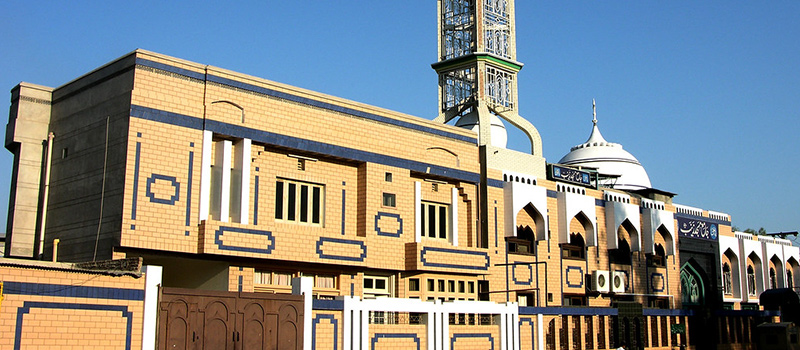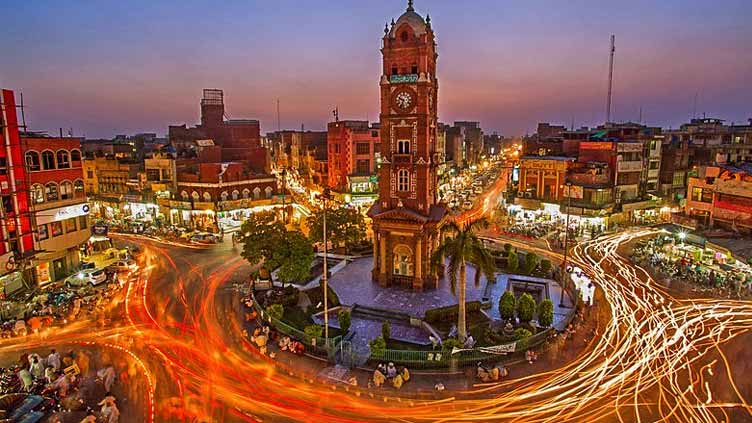
About the Faisalabad
The Manchester of Pakistan
Faisalabad, often referred to as the "Manchester of Pakistan," is one of the most significant industrial and metropolitan cities in the country. Located in the Punjab province, it has transformed from a small colonial settlement into a bustling hub of commerce, manufacturing, and education. With its dynamic economy, diverse culture, and resilient people, Faisalabad represents the spirit of progress and self-reliance in Pakistan.
A Historical Perspective
Originally known as Lyallpur, the city was established during the British Raj in the late 19th century. It was named after Sir James Lyall, then Lieutenant Governor of Punjab, who oversaw the development of the canal system that turned the barren land into fertile fields. The British planned the city with a distinctive urban design, radiating eight major roads from a central clock tower—a design still present today and known as the "Ghanta Ghar" or Clock Tower area.
After independence in 1947, Lyallpur became a focal point for migration and economic growth. In 1979, the city was renamed Faisalabad in honor of King Faisal of Saudi Arabia, a close ally of Pakistan. Despite the change in name, the city retained its spirit of hard work, innovation, and multicultural vibrancy.
The Economic Engine
Faisalabad is Pakistan’s third-largest city and plays a crucial role in driving the country's economy. Its industrial base is diverse, but the textile sector remains its crown jewel. Often compared to Manchester in the United Kingdom, Faisalabad produces a large share of Pakistan’s textile exports. The city is dotted with mills, factories, and power looms that produce cotton yarn, garments, bed linen, and towels, which are shipped to countries around the globe.
Beyond textiles, Faisalabad has thriving industries in chemicals, fertilizers, pharmaceuticals, packaging, food processing, and machinery. The Faisalabad Industrial Estate and the M3 Industrial City are major industrial zones attracting local and foreign investment. Countless small and medium enterprises also support the economy, providing employment to a large segment of the population.
Faisalabad’s economy is bolstered by a strong agricultural foundation. The fertile lands surrounding the city produce wheat, sugarcane, vegetables, and fruits, all contributing to the local supply chain and national food security.
Education and Learning
Faisalabad is not just an industrial powerhouse but also a growing educational center. The city is home to several reputable universities and colleges that attract students from across the country. The University of Agriculture Faisalabad is one of the leading institutions in the field of agricultural sciences in South Asia. It has played a vital role in research and innovation, supporting both farmers and industries.
Other institutions like the National Textile University, Government College University Faisalabad, and Punjab Medical College offer education in specialized fields, helping prepare the next generation of professionals, engineers, doctors, and entrepreneurs. Private educational institutions also contribute to improving literacy and technical education in the region.
Culture and People
Faisalabad’s culture is a blend of traditional Punjabi values and the progressive mindset of a growing urban center. The people are known for their hospitality, resilience, and industrious nature. Most families have strong ties to agriculture or manufacturing, and there is a strong sense of community and pride in local achievements.
Punjabi is the primary language spoken, while Urdu and English are commonly understood and used in education and business. Cultural traditions are deeply respected, with festivals such as Eid, Basant, and Independence Day celebrated with zeal. Folk music, poetry, and Punjabi cuisine are integral to the local lifestyle.
Food is a big part of Faisalabad’s identity. The city is famous for its traditional dishes like nihari, paye, haleem, biryani, and samosas. The night food street near D Ground and other busy commercial areas are always alive with families and youth enjoying local delicacies.
Urban Development
Over the past two decades, Faisalabad has undergone significant urban transformation. The city’s infrastructure has improved with new roads, flyovers, and housing schemes. Areas like Canal Road, Madina Town, and Jaranwala Road are major commercial and residential zones. Real estate development is on the rise, reflecting the city’s growing middle class and urbanization.
Shopping malls, cinemas, parks, and recreational centers have emerged, offering modern amenities to residents. The Clock Tower area remains the commercial heart of the city, where eight bazaars meet in a radial pattern, each specializing in different goods, from electronics and textiles to spices and jewelry.
Transportation and Connectivity
Faisalabad is well connected to other parts of Pakistan through roads, railways, and an international airport. The M3 Motorway links it directly to Lahore and Islamabad, reducing travel time and boosting trade. The Faisalabad International Airport facilitates domestic and international flights, especially to the Middle East, making it easier for the large number of overseas workers and exporters to connect with global markets.
The city also has a network of buses, vans, and rickshaws for local transportation. While public transit is still developing, new efforts such as air-conditioned buses and road expansion projects aim to improve urban mobility.
Challenges Facing the City
Despite its economic strength and growing infrastructure, Faisalabad faces several challenges. Air and water pollution are increasing due to industrial emissions and poor waste management. The city’s rapid expansion has put pressure on housing, traffic, and public services. Load-shedding, clean water scarcity, and urban flooding during monsoon seasons are recurring issues.
Labor rights and working conditions in textile factories remain areas that need reform. The city must also work on improving healthcare, education in rural areas, and environmental sustainability to ensure balanced and inclusive growth.
The Spirit of Faisalabad
What truly defines Faisalabad is the unwavering determination of its people. Whether it’s the factory worker operating a loom for 12 hours a day, the farmer tilling the land outside the city, or the student preparing for exams in a city hostel, each individual contributes to the city’s collective momentum.
Faisalabad’s story is one of transformation through effort. It is a city that continues to evolve, embracing modernity while staying rooted in tradition. It is not powered by natural resources or strategic geography, but by the sweat, creativity, and drive of its people.
Vision for the Future
Faisalabad’s future lies in sustainable industrial growth, technological advancement, and inclusive development. By investing in clean energy, smart city infrastructure, and better education, the city can continue to lead Pakistan's economic engine. Strengthening local governance and community engagement will also ensure that development reaches every corner of the district.
With more attention to the environment and workers’ welfare, Faisalabad can become not just the Manchester of Pakistan, but a global model for urban-industrial cities in the developing world.
Conclusion
Faisalabad stands as a testament to Pakistan’s potential for industrial and economic success. It is a city born from the vision of planned development, grown through the sweat of its laborers, and shaped by the dreams of its entrepreneurs and youth. From the rhythmic clatter of textile looms to the quiet hum of university lecture halls, Faisalabad is alive with ambition, effort, and resilience. It is, and will continue to be, a cornerstone of Pakistan’s journey toward progress and prosperity.
Address: 3MFP+HCW, Sargodha, Pakistan
